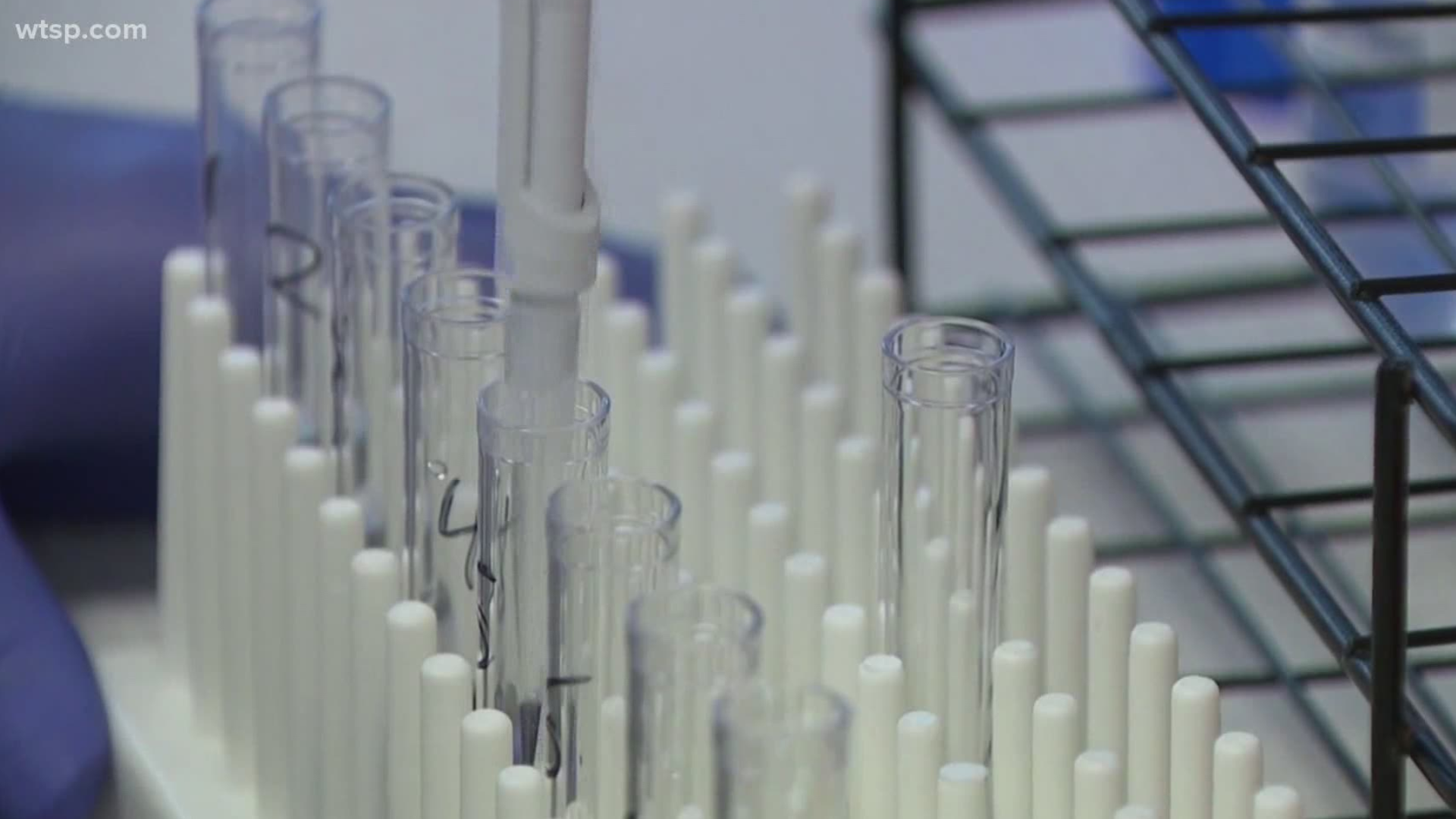TAMPA, Fla — The novel coronavirus has proven to be unpredictable -- it’s unclear if recovered patients have strong immunity against contracting it again, according to a new study from the University of Amsterdam which suggests immunity might be as short as six months.
The study said in a small group of tested subjects, there was a “substantial reduction in antibody levels as soon as six months post-infection.”
It’s not yet known if and how that would apply to a wider range of subjects.
10 Tampa Bay reporter Emerald Morrow spoke with Dr. Jay Wolfson and Dr. Haywood Brown at the University of South Florida about conferred immunity, the 2019 novel coronavirus and strategies as mutations begin to appear abroad.
NOTE: This conversation has been edited for length and clarity.
Emerald Morrow: Explain conferred immunity.
Dr. Haywood Brown: Conferred immunity means that you get a virus and that virus gives you enough antibodies to protect you. The best example I can give you is as a child, I got measles. Measles gave me a lifetime immunity from ever getting measles again, and that was many, many years ago. The big challenge is, that's a lifetime. We don't know, necessarily with the coronavirus, even when you get antibodies, how long those antibodies will protect you from that particular strand of the virus.
Emerald Morrow: If someone contracts the novel coronavirus, what type of immunity would they have after recovering?
Dr. Jay Wolfson: We don't know. This virus behaves so strangely. If a person gets a flu shot this year, they often times will get a flu shot next year because the strain's going to be a little different, especially for higher-risk individuals. So, the general rule of thumb is, if there's going to be a mutation of the virus, if it's a modest mutation, your previous inoculation or experience with the disease might help you a little bit, or it may not. With this one, we just don't know.
Emerald Morrow: So, people should not assume because they had coronavirus once that they are immune from getting it again?
Dr. Brown: Absolutely correct. We don’t know enough about this virus to know how long that antibody is going to last to keep you from getting it again. It may very well be like the flu. We know we have to take a flu immunization every single year because there are different strands of the flu.
Emerald Morrow: What about mutations? There are reports the virus is already mutating in parts of China and Europe. How would that impact immunity?
Dr. Brown: Again, as we work about developing a vaccine for this particular aspect of corona-19, it would be a vaccine for that strand, but if we’re seeing mutations already, that means that you may need to have a vaccine every year that will at least give you partial protection from the previous strand that we have been immunized against or got a vaccine for.
Dr. Wolfson: Even if there's not a mutation, we don't have enough experience in terms of time and numbers with this virus to know that if I get it today, recover from it and I'm exposed to it again in the summer, fall or 2021, will I have conferred immunity for any period of time? We don't know yet.
Emerald Morrow: Many states are starting to reopen and while some people are diligent about masks and social distancing, we are seeing reports where others are not. What concerns do you have about relaxing personal responsibility?
Dr. Brown: The social distancing, the handwashing, the wearing of the masks to protect ourselves, but more importantly to protect others if you have it is really key. This is something we’re going to have to keep up for a very, very long time in order to keep us from getting exposed to the current coronavirus or from passing that virus onto others if we have it.
Dr. Wolfson: We're going to have to get used to testing until we have a vaccine or a treatment, and that requires education, vigilance, and we're doing better every day in Florida as we learn we have to test more and more, especially in the high-risk communities.
Emerald Morrow is a reporter with 10 Tampa Bay. Like her on Facebook and follow her on Twitter. You can also email her at emorrow@10TampaBay.com.
What other people are reading right now:
- Researchers track high levels of COVID-19 in Florida wastewater
- WATCH: Catfish caught on camera 'walking' over gators
- Vintage picture shows football fans wearing masks during 1918 pandemic
- Weather forecast looks iffy for historic SpaceX, NASA launch
- Child drowns after being caught in current at Siesta Key Beach
FREE 10NEWS APP:
►Stay In the Know! Sign up now for the Brightside Blend Newsletter



